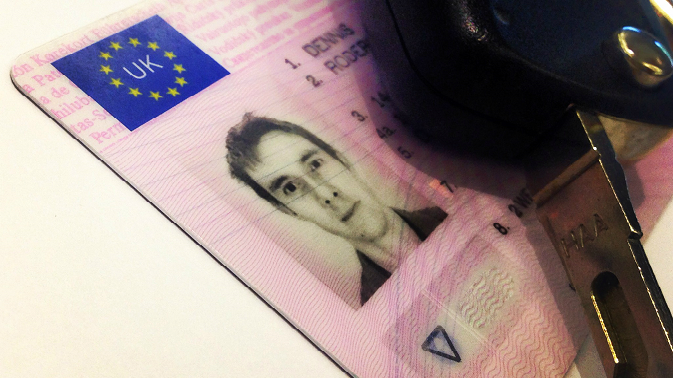
Press release -
Uninsured by default: Millions of drivers wouldn’t own up to driving licence points
Nearly a fifth of motorists (18%) would not inform their insurer if they picked up penalty points while driving, new research by RAC Insurance has found – potentially putting nearly seven million drivers* at risk of holding invalid insurance, as well as future prosecution.
The data also shows that a quarter (25%) of motorists surveyed who already have penalty points did not inform any organisation when they received them. Whether they did this knowingly or unwittingly, it effectively means more than 700,000 motorists** could now be driving without valid car insurance.
The implications of not declaring penalty points are serious with motorists risking having a worthless insurance policy, and hefty penalties from the police. If they were to be involved in an accident they could then face further penalty points, an unlimited fine and be disqualified from driving. The police could even seize and potentially destroy the uninsured vehicle.
Problems could also arise should a driver need to make a car insurance claim for any other reason – an insurer could point blank refuse the claim, cancel or void the policy or immediately increase the premium. If the policy is cancelled or voided this could also affect a motorist’s ability to take out insurance with other providers.
If a motorist drives as part of their job, they might also be expected to declare any penalty points, with some employers demanding a full, clean licence depending on the occupation. Yet the RAC Insurance research found only around one in 10 motorists surveyed (13%) would plan on informing their employer if they received points in the future.
RAC Insurance director Mark Godfrey said: “Our research points to one of two likely scenarios: either motorists are simply forgetting to inform the relevant authorities when they receive points, or they are intentionally not telling them in order to keep their insurance premium lower.
“In either case, the result is hundreds of thousands of drivers on our roads who are effectively uninsured by default. This could have very serious, and indeed costly implications should they be involved in an accident, and could cause no end of problems should they need to make an insurance claim themselves.”
The DVLA, which holds data on each motorist’s penalty points, launched a joint initiative called MyLicence with the Motor Insurers’ Bureau in late 2014, to combat fraud.*** This gives insurers automatic access to the last five years of a motorist’s driving history, including points, if a motorist provides their driving licence number. However, the system is a voluntary one and not all insurers will insist on a driving licence number being provided, so in many circumstances a motorist can just choose to declare points and convictions when applying for an insurance policy.
Mark Godfrey continued: “The end of the paper counterpart to the driving licence and the arrival of the MyLicence system means more insurers have access to a driver’s motoring endorsements. This is a positive step in cutting fraud and should help to ensure motorists receive fairer premiums.
“While there is currently no requirement on motorists to provide their licence number when requesting a quote, this may well change in the future as insurers realise the benefits of taking endorsement data directly from the DVLA, rather than relying on a motorist’s word. In the meantime though, the message to motorists is clear – not declaring points is simply not worth the risk should you get caught or are involved in an accident.”
Driving an uninsured vehicle can result in prosecution and between six and eight penalty points. Penalty points are given to motorists for a wide range of offences, from failing to comply with traffic signals and signs, driving a defective vehicle and speeding, right up to the most serious offences including drink and drug driving, and dangerous and reckless driving.
Topics
Categories
Notes to Editors
About the RAC
With more than eight million members, the RAC is one of the UK's most progressive motoring organisations, providing services for both private and business motorists. Whether it's roadside assistance, insurance, buying a used car, vehicle inspections and checks, legal services or up-to-the-minute traffic and travel information – the RAC offers a solution for all motoring needs. The RAC is committed to making motoring easier, safer, more affordable and more enjoyable for drivers and road users.
The RAC is the motorist’s champion and campaigns to support the interests of its members and UK motorists at a national level, including advancing levels of road safety, supporting the needs of young drivers and voicing concerns about the increasing cost of motoring. The RAC’s annual Report on Motoring – first published in 1989 – provides a clear insight into the concerns and issues facing today’s motorists.
For the very latest news on UK fuel prices, check RAC Fuel Watch or follow #racfuelwatch on Twitter. This is a comprehensive guide to the latest UK unleaded petrol and diesel prices – both at the wholesale level and at the pump. RAC Fuel Watch analyses how prices changed through the previous month and compares the most recent prices with those from three, six and 12 months before.
Key facts:
- RAC patrols fix four out of five vehicles at the roadside and on average within 34 minutes
- RAC vans carry more than 500 parts and tools to get members’ vehicles going again
- 98% of members would recommend RAC Rescue to their friends and family


